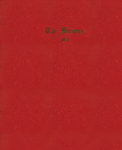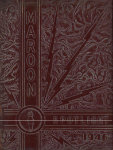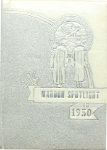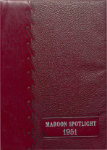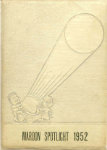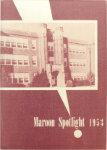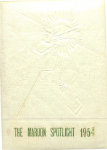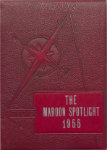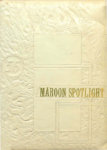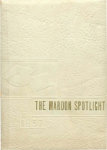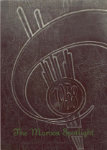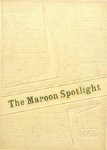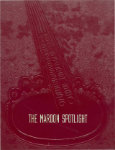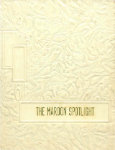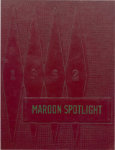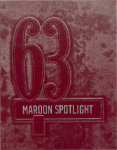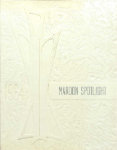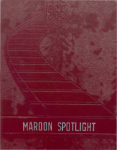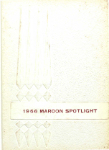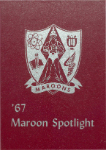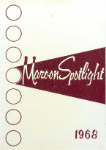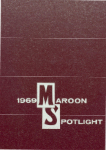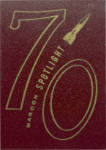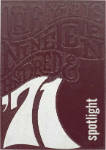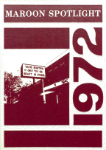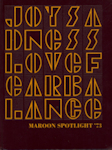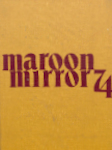Yearbooks
Yearbooks (Annuals to those who graduated before 1985) are one of the “must see” items at the Alumni Office. You will find one for almost every year published. Not only are they triggers to recall fun memories; they are a valuable source for genealogists and Perry historians.
The Peroma
The idea to publish a high school annual started with the graduating class of 1915. However, because of a late start the project was not completed. The following year the students worked diligently to publish the first annual, The Peroma. Funds were raised by selling advertisements to the local businesses and by a benefit performance by the high school Carol Club in November, 1915. Although the annual was not ready for distribution until June, after the closing of school, it was acclaimed as “highly successful.” Selling for seventy-five cents, its 114 pages were printed on heavy enameled book paper with a brilliant scarlet cover. Each class, organization, and even the Alumni Association had a section of its own.
A total of eight volumes of The Peroma were published for the years, 1916, 1918, 1920-24, and 1927. Links to these yearbooks will be posted as they are digitized.
The Maroon Spotlight
After an 18-year hiatus during the hard times of the depression and World War II, an annual was again published in 1946. With a new name, Maroon Spotlight, it was dedicated to the sixteen graduates who “gave the supreme sacrifice in World War II for the principles for which Perry Junior-Senior High School stands and in honor of all those former students who have so gallantly fought our battles.”
The 1946 annual provides a history of the previous nine years in the Perry Schools including the events of depression years, the war years, the beginning of peace and the building program. The building needs were met in part by Roosevelt’s Works Progress Administration (WPA) program which provided approximately two-thirds of the construction cost for the manual arts building in 1937, the band building in 1939, and the grade-school building and garage during 1941-42. Blaine School also received six class rooms, a gymnasium/auditorium and shop building.
